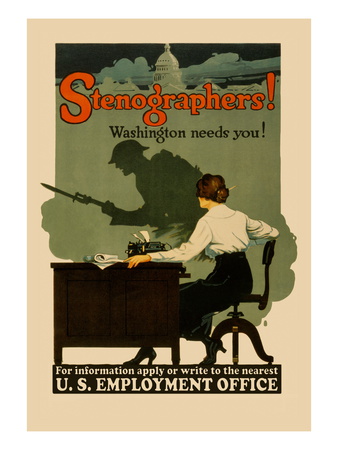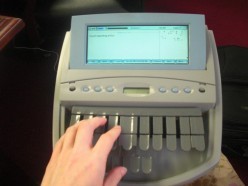When I was in high school, I wanted to be a court reporter. The problem was, it wasn't a widely advertised profession. There were few schools that offered a court reporting program.
I didn't know any court reporters, so I couldn't ask questions that aren't answered by a pamphlet. Is court reporting worth the effort? Is it a good job if you have young children? What types of things do you do as a court reporter?
There is a lot of information about court reporting out there, but sometimes it's easier to talk to an actual reporter who's been there. And if you don't know a court reporter personally, it can be difficult to find answers to your questions.
I've written this article to answer your basic questions about court reporting if you're considering it as a career.
Court reporting doesn't just take place in the courtroom. By being a court reporter, you can work from home as a captioner, be an angel to a student in a classroom, or find out the juicy details of a high profile trial.



 I am a freelance court reporter here in Florida. I am an independent contractor and I can work for several court reporting firms at the same time.
I am a freelance court reporter here in Florida. I am an independent contractor and I can work for several court reporting firms at the same time.
















 How to Learn to Make Money Online Bloggingon 11/08/2015
How to Learn to Make Money Online Bloggingon 11/08/2015
 Funky Retro Fun with the Polaroid Socialmatic Instagram Camera and Accessorieson 01/01/2015
Funky Retro Fun with the Polaroid Socialmatic Instagram Camera and Accessorieson 01/01/2015
 Haunted Florida: The Legend of the I-4 Dead Zoneon 12/07/2014
Haunted Florida: The Legend of the I-4 Dead Zoneon 12/07/2014
 Easy to Make Paw Print Christmas Ornament Kiton 11/25/2014
Easy to Make Paw Print Christmas Ornament Kiton 11/25/2014



Comments
Thank you! I hope you get out of school quick!
Excellent information! As I am studying to become a court reporter
Many thanks! I'd never have gotten that in a year of guesses! Guess you can see why I'm no stenographer...
It says What Do Court Reporters Do
Now, I'm no stenographer, so please translate the header picture, if it means anything at all? I struggled with Teeline shorthand in college and eventually decided that audio typing was more my bag.
You're welcome. I'm glad it helped you!
Thanks for this information! It's just what I was looking for!